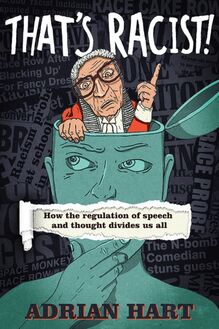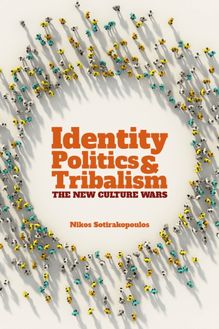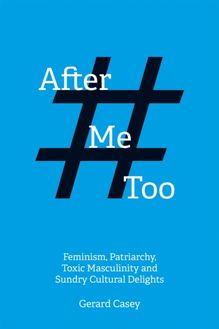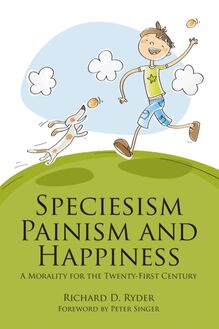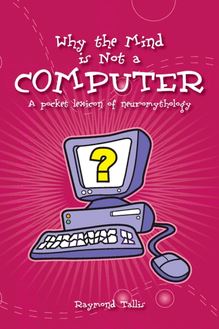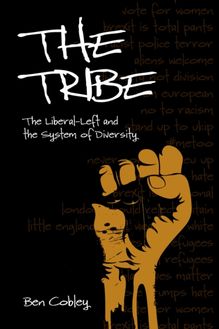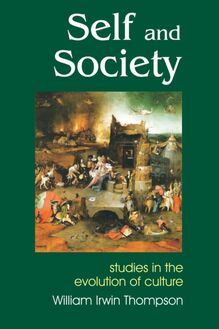Liberty Option , livre ebook
63
pages
English
Ebooks
2012
Vous pourrez modifier la taille du texte de cet ouvrage
Obtenez un accès à la bibliothèque pour le consulter en ligne En savoir plus
Découvre YouScribe en t'inscrivant gratuitement
Découvre YouScribe en t'inscrivant gratuitement
63
pages
English
Ebooks
2012
Vous pourrez modifier la taille du texte de cet ouvrage
Obtenez un accès à la bibliothèque pour le consulter en ligne En savoir plus
Publié par
Date de parution
30 juillet 2012
Nombre de lectures
0
EAN13
9781845403621
Langue
English
Publié par
Date de parution
30 juillet 2012
Nombre de lectures
0
EAN13
9781845403621
Langue
English
Title page
The Liberty Option
Tibor R. Machan
IMPRINT ACADEMIC
Copyright page
Copyright © Tibor R. Machan, 2003
The moral rights of the authors have been asserted
No part of any contribution may be reproduced in any form without permission, except for the quotation of brief passages in criticism and discussion.
Originally published in the UK by Imprint Academic
PO Box 200, Exeter EX5 5YX, UK
Originally published in the USA by Imprint Academic
Philosophy Documentation Center
PO Box 7147, Charlottesville, VA 22906-7147, USA
2012 digital version by Andrews UK Limited
www.andrewsuk.com
Societas: Essays in political and cultural criticism
Volume 5
Acknowledgements
I wish to thank several publications for permission to make use of materials in this work that appeared in works they have published by me. Among them are The Philosophers’ Magazine , Hoover Essays in Public Policy, and Journal des Economists et des Estudes Humaines. I also wish to thank the Hoover Institution and its Executive Director, John Raisian, for its support of the work I have been doing on this and related projects.
Preface
This is a brief introduction to the philosophy of liberty – also dubbed classical liberalism and libertarianism in the literature of political philosophy – the political outlook that is associated with such thinkers as John Locke, Adam Smith, John Stuart Mill, Ludwig von Mises, F.A. Hayek, Milton Friedman, Ayn Rand and others. The best-known academic philosophical exponent of this view was the late Robert Nozick, of Harvard University, in his book Anarchy, State, and Utopia .
After a longish introduction the rest of the essays discuss certain central issues in libertarianism and the book ends with some brief – and thus mainly suggestive – thoughts about ways in which the natural rights variety of libertarianism addresses a variety of issues.
It has been pointed out to me over my career that libertarianism may be better defended on utilitarian grounds than the ones I deploy. That is to say, it is good to respect and protect individual liberty because that way the highest values of human life will be best secured and promoted.
Unfortunately, sometimes this is true but not always – at times free men and women do not secure and promote what is best for them. They may be lazy, careless, and even reckless. So, being free doesn’t guarantee happiness. It is for this reason that some prominent libertarians distinguish themselves from utilitarians – the late Robert Nozick is most notable for this. The utilitarian typically will deploy force – or even become a statist – so as to secure the greatest good for all, whereas the libertarian holds that individual rights to life, liberty and property are unalienable, inviolate, even if this risks occasional setbacks on the front of promoting certain values.
Of course, if respecting the rights to life, liberty and property actually promoted human unhappiness these rights could not be defended. But that’s not the issue. What is at stake is whether a principled, rights-based defense of libertarianism is sound, rather than one that requires showing, in each case where a public policy decision needs to be made, that liberty will assure the promotion of happiness. In my view the former approach is correct and so I do not think, for example, that whether or not gun control laws ought to be enacted needs to be debated every week, month or even year, based on the latest statistics as to whether places with such laws reduce or increase crime.
So, we have in these brief essays discussions of what libertarianism means and why it is, beyond a reasonable doubt, the best political system.
Introduction: A Short Lesson About Liberty
It will help me explain and defend the free society if we have a clear enough idea of what it is. As with all normative theories, the classical liberal, libertarian system has several versions, even though the tenets of the political position are not very complicated to lay out. I have gone over the following lines with several other libertarian political theorists and have not found major objections voiced against it.
Champions of the fully free society uphold the sovereignty of each adult individual in social life. They distinguish themselves in the political arena in most western countries from both the Left and the Right because, on the one hand, the Left is inclined primarily to impose restrictions on individuals pertaining to their economic or material actions, while the Right imposes on individuals when it comes to their spiritual or mental actions. Both Left and Right enlist government for the purpose of regimenting certain aspects of the individual’s life, whereas the libertarian sanctions only those laws or rules that aim at keeping everyone’s sovereignty – at protecting individual rights to life, liberty and property.
Just as a quick illustration, many US conservatives endorse the war on drugs as well as a closer unity between government and church, bans on prostitution, gambling, pornography and other vices. It is mostly concerning the crafting of people’s souls that the Right enlists the government’s coercive powers, although since body and soul aren’t ever sharply divided, this often involves regulating people’s economic activities as well (e.g. Sunday liquor laws). [1]
The Left, in turn, wants heavy government regulation of the economy – minimum wage laws, anti-trust crusades, etc. [2] They want progressive taxation and government efforts to equalize and redistribute wealth, not simply to protect the integrity of market and other voluntary transactions and interactions. Here, too, a sharp division between the economic and the spiritual is impossible, so the Left is often involved in regimenting people’s talking and thinking (e.g., when it supports government bans on hate speech or racial discrimination in commerce) while the Right will often support ‘blue’ laws to protect people from moral degradation.
In the particular area where their philosophical focus is, the Left and Right both want government intrusion. Ayn Rand noted this a long time ago – she suggested, thereby, that metaphysics has a good deal of impact on public policy. (The Right’s idealism and the Left’s materialism tend to dictate what is to be controlled.)
In non-Western countries and cultures these distinctions are less germane. In the context of such societies the libertarian seems almost beyond the pale for considering individual rights the bedrock of justice, given how prevalent groupism – tribalism, ethnic or religious solidarity, nationalism and the like – tends to be.
The champion of the fully free society sees the function of the legal system and authorities as, first and foremost, to protect individual rights. In that respect the champion of the fully free society is more loyal to the (original) vision of the American republic and the English political theorist John Locke, the philosophical grandfather of that polity, than are any other political movements afoot now. Republicans, Democrats, socialists, conservatives, liberals, communitarians, Islamic, Christian, Hindu or other religious fundamentalists and the rest all seek to impose ways of private conduct, often claiming that there does not even exist a sphere of legitimate privacy in human life.
The US Declaration of Independence states, by contrast, following the lead of Locke, that all men are created equal and endowed by their creator with certain unalienable rights, amongst which are life, liberty and the pursuit of happiness. Champions of the free system believe that they flesh out this document more accurately, consistently and completely than do Democrats, Republicans, socialists, communists, communitarians or any other political faction in this society.
Why? Because if we really do have the right to our lives, for example, then the legal system should protect us against all efforts on the part of either criminals, foreign aggressors or the legal authorities themselves as to how we ought to live. All paternalistic intervention, even for the sake of improving some aspect of our lives, is intolerable – bans on drug abuse and smoking in private places or regulation of employment. Adults are off limits as far as regimenting their lives, actions and goals is concerned. That is what having an unalienable right to life, liberty and the pursuit of happiness comes to, nothing less. A proper legal order has as its primary goal to protect these rights.
Take the particularly controversial case of the position that no one has the authority to prevent you from committing or seeking assisted suicide. Now that’s fairly radical. Many find it objectionable because they think we either belong to God or to some group or, thus, aren’t authorized to decide what happens to us and what should be done about it.
Champions of the system of liberty hold that one’s right to life is the only authority to decide what happens to one’s life and that if someone who can assist with suicide is invited by one to help, prohibiting it is unacceptable. The right to life, according to this view, means that you, not other people, should be the one who makes decisions about your life, including whether to delegate to someone else who is willing the authority to help with ending it.
Rights are principles identified in the field of political theory that spell out ‘borders’ around us. In order to cross those borders, those inside must provide those outside with permission.
Just consider the right to private property, as we normally understand it. If it is your car, somebody else who wants to use it must ask your permission. You are the one who is to make that decision. If you want to refuse permission you have the






